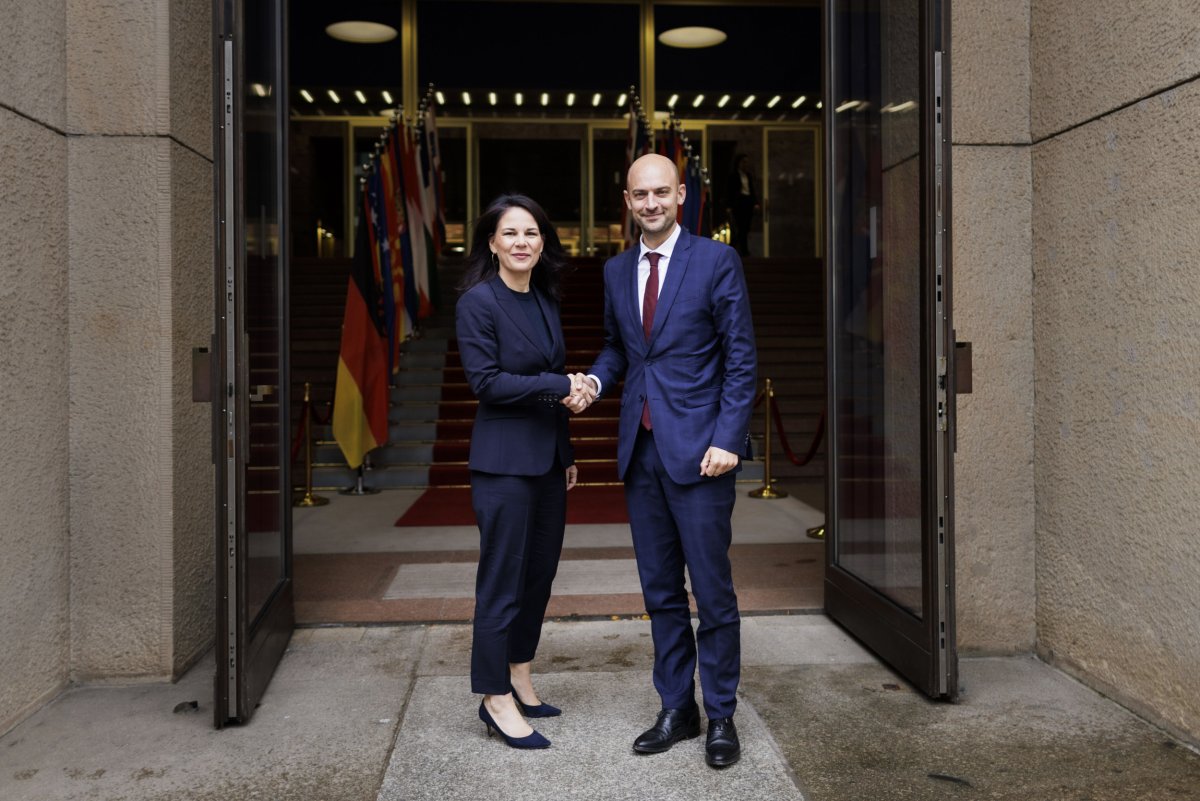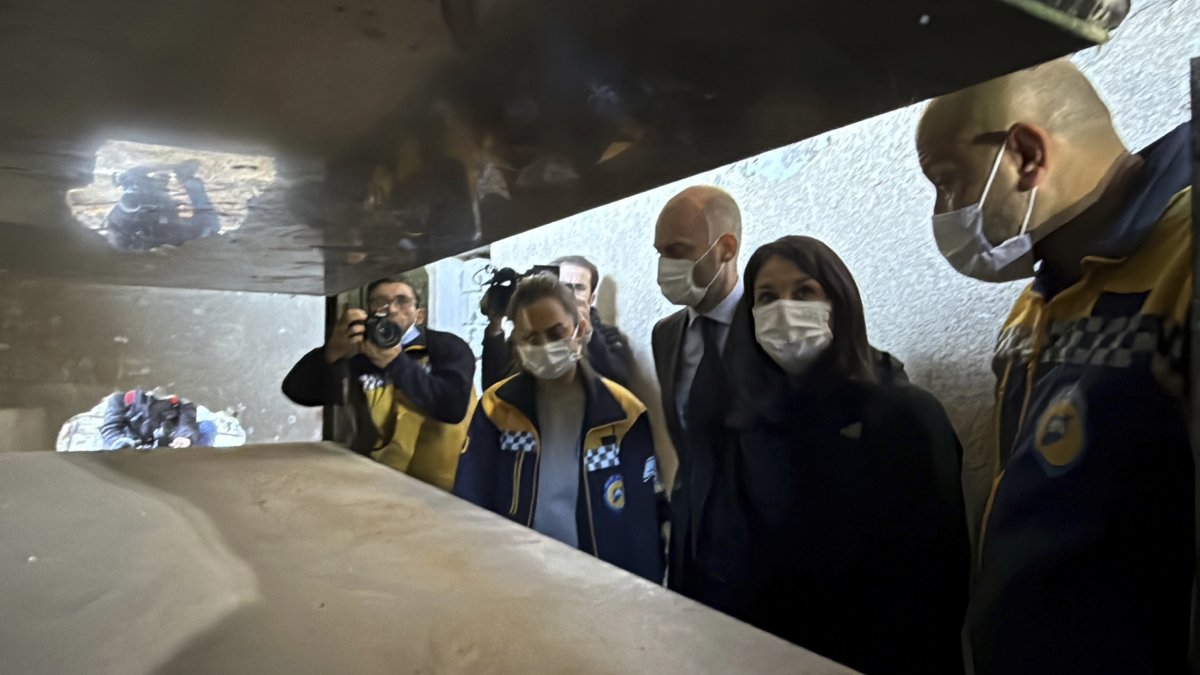The foreign ministers of Germany and France, Annalena Baerbock and Jean-Noël Barrot, visited Damascus to propose a “political new beginning” between Europe and Syria.
This marks the first official visit to Syria by senior European diplomats since the ousting of former President Bashar al-Assad. Both ministers aim to support a peaceful transition and regional stability by engaging with Ahmad al-Sharaa, leader of Syria’s de facto ruling party, and other civil society representatives.
Baerbock emphasized the need for a just political process inclusive of all Syrians, regardless of ethnic or religious background. She warned against prolonged delays in elections, steps toward Islamification of public institutions, and retaliatory acts against specific population groups. Barrot echoed these sentiments, describing the mission as essential for fostering peace in Syria and the broader region.

Kira Hofmann/AP Photo
Why It Matters
The visit symbolizes a significant shift in European diplomacy following years of strained relations during Syria’s prolonged civil war. Assad’s fall opened the door for renewed international engagement, although Western sanctions and terrorism designations on key Syrian groups remain in place. This initiative may redefine Syria’s global standing and influence future diplomatic efforts in the region.
What to Know
Baerbock and Barrot’s meeting with Ahmad al-Sharaa, formerly known as Abu Mohammed al-Golani of Hayat Tahrir al-Sham (HTS), reflects Europe’s cautious engagement with Syria’s evolving leadership.
Despite this, HTS remains designated as a terrorist group by Western nations, and sanctions on Syria persist.
Sanctions and International Relations
While Arab and Western nations have initiated diplomatic visits to Damascus, Western sanctions against Syria remain in place. Sanctions initially imposed during Bashar al-Assad’s rule have not been lifted, and HTS retains its designation as a terrorist group.
However, the U.S. recently lifted a $10 million bounty on Ahmad al-Sharaa, signaling a potential shift in international policy.
Since Assad’s removal, Damascus has seen increased international attention, reflecting the evolving geopolitical landscape of the region.

J’rg Blank/AP Photo
What People Are Saying
German Foreign Minister Annalena Baerbock: “A political new beginning is possible only if rights and protections are ensured for all groups.”
French Foreign Minister Jean-Noël Barrot: In a statement on the social media platform X, Barrot said that the two countries “want to promote a peaceful and urgent transition in the service of Syrians and for regional stability.”
What Happens Next
As diplomatic efforts in Syria gain momentum, the global community awaits further clarification on how Europe’s engagement will influence regional stability and humanitarian aid.
This article includes reporting from The Associated Press